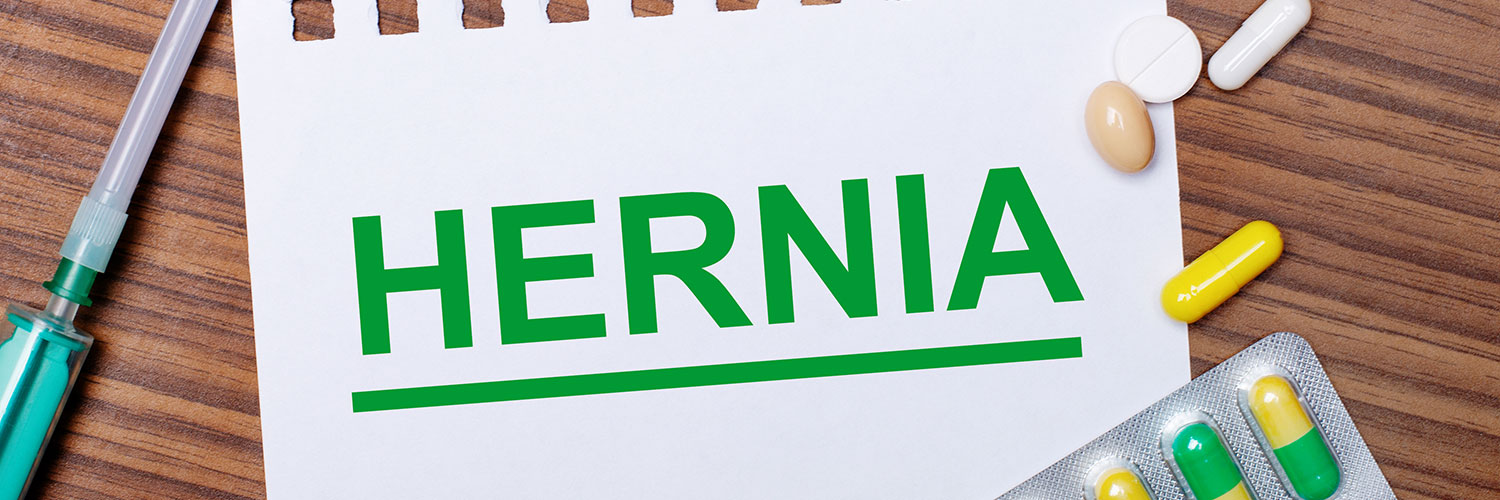Weekly Mass Torts Bulletin 2022-October-31
MA Registers Nearly 6,000 Covidien Hernia Mesh Lawsuits

The parties report that nearly 6,000 complaints have already been filed by individuals who have suffered injuries after receiving the hernia repair products, with the majority pending in Massachusetts state court, in advance of a meeting this week before the U.S. District Judge recently appointed to preside over all federal Covidien hernia mesh lawsuits.
Each lawsuit contains similar allegations, indicating that plaintiffs experienced complications after receiving defective polypropylene hernia mesh products sold in recent years, such as Covidien Parietex and Covidien Symbotex.
Plaintiffs report severe abdominal pain, infections, organ perforations, erosion, and other issues, which frequently necessitate risky hernia revision surgery to remove the defective mesh from their bodies.
Given the common factual and legal issues raised in complaints filed in U.S. District Courts across the country, the U.S. Judicial Panel on Multidistrict Litigation decided to centralise the Covidien hernia mesh lawsuits in June 2022, transferring all cases to U.S. District Judge in Massachusetts for coordinated discovery and a series of early trial dates.
According to recent filings made in advance of an October 25 status conference, the parties report that there are currently 170 lawsuits pending in the federal Covidien MDL (multidistrict litigation). However, another 5,700 claims have been filed in state court in Massachusetts, where the manufacturers' headquarters are located.
The judge has established a "bellwether" process as part of the coordinated management of the litigation, in which a group of representative cases will be prepared for early trial dates to help the parties gauge the relative strengths and weaknesses of their claims, as well as how juries are likely to respond to certain evidence and testimony that will be repeated throughout the litigation.
On October 14, plaintiffs and defendants filed competing proposals for the timeline for preparing these MDL bellwether cases. The parties indicated that they had reached an agreement on the majority of issues concerning a proposed scheduling order, electronic stored information (ESI), and a proposed confidentiality and protective order. The parties, however, disagree on the completion of general corporate discovery for the initial bellwether cases, as well as coordination with the Massachusetts state court litigation.
Plaintiffs requested that discovery be completed by April 8, 2024 in a proposal submitted on October 14, while defendants requested that discovery be completed in less than a year, by September 30, 2023.
Plaintiffs claim the proposal is unreasonable and that they have made concessions on a number of factors in the proposals, but the defendants were more obstinate.
The plaintiffs wrote in their filing that defendants did not share Plaintiffs' compromising spirit. Rather, in exchange for adopting Plantiffs' reasonable date, Defendants proposed a draconian coordination procedure with the state court proceeding that would prejudice all plaintiffs in this MDL. To be sure, the only question the Court must answer for the scheduling order CMO is whether Plaintiffs receive less than a year to prepare a major MDL case for trial or the more reasonable time frame of 18 months proposed by Plaintiffs. The Plaintiffs should be given 18 months to conduct discovery.
While the outcomes of these bellwether trials will not be binding on other plaintiffs in the litigation, they may help push the parties toward hernia mesh settlements, avoiding the need for hundreds of individual trials.
More than 15,400 Bard hernia mesh lawsuits were centralized in the Southern District of Ohio, another 3,600 Ethicon Physiomesh lawsuits were centralised in the Northern District of Georgia, and 3,251 Atrium C-Qur lawsuits were centralised in the District of New Hampshire. Many of those claims were settled before the first jury trial.
Elmiron Vision Loss Trial Postponed To March 2023

The first bellwether trial has been postponed until March 2023 by the United States District Judge presiding over all federal Elmiron vision loss lawsuits.
Elmiron (pentosan polysulfate sodium) is a prescription medication used to treat interstitial cystitis or painful bladder syndrome. Because there is no cure for the underlying condition, users often take it for years. However, there are now over 1,700 lawsuits being pursued by former Elmiron users who have been left with a rare type of eye problem known as pigmentary maculopathy, which results in progressive vision loss, blurry vision, distorted vision, difficulty adapting to dim light, and other symptoms from retinal damage.
Each of the lawsuits alleges that Johnson & Johnson and its Janssen Pharmaceuticals subsidiary provided false and misleading information about the Elmiron vision side effects for decades, and failed to warn doctors about the importance of monitoring for vision changes while taking the bladder drug, which can cause users to have a permanent blurry or distorted vision, as well as blindness.
Given the common factual and legal issues raised in claims filed throughout the federal court system, an Elmiron MDL was established in December 2020, centralizing the litigation before a U.S. district judge in the District of New Jersey for coordinated discovery and pretrial proceedings.
The judge has established a "bellwether" process in the MDL, where a small group of representative cases are being prepared to go before juries to help the parties evaluate the relative strengths and weaknesses of their claims and promote potential Elmiron settlement negotiations.
It was stated early in the litigation that the first Elmiron lawsuits would be heard by juries in January 2023. However, the Court announced this week that the first case will be delayed for at least two months.
An attorney-filed complaint was chosen earlier this year as the first bellwether trial, involving allegations that a Louisiana woman developed retinal pigmentary changes, including macular degeneration, about two years after starting Elmiron.
The trial date for the lawsuit will now begin on March 27, 2023, according to a court order issued on October 24. The order directs the parties to meet and confer before submitting an amended case management order detailing how the change will impact other scheduled deadlines in preparing the case for trial.
According to the most recent docket report (PDF) issued by the United States Judicial Panel on Multidistrict Litigation (JPML) on October 14, 2022, there are currently at least 1,784 complaints pending before the judge, and the size of the litigation continues to grow as new Elmiron lawsuits are filed by former users diagnosed with vision problems.
In addition to the attorney's claim, two other Elmiron bellwether claims were chosen from the initial group of 20 cases that went through case-specific discovery and are also scheduled to go before a jury in 2023. However, it is unclear how the current case's delay will affect these Elmiron trial dates.
Following the Elmiron bellwether trials, it is expected that the judge will expand the number of claims being prepared for trial and consider remanding large waves of claims to U.S. District Courts nationwide for separate trial dates in 2024 and 2025 if the parties fail to make progress with settlement negotiations or the drug maker fails to establish that it can consistently defend the safety of the drug at trial.
VA Creates Opioid Cost Calculator To Measure Opioid Crisis

The Virginia Department of Health (VDH) and the Center for Society and Health at Virginia Commonwealth University (VCU) have cooperated to create an opioid cost calculator.
The calculator calculates how much the opioid crisis costs Virginians in a variety of areas, including lost employment, healthcare, crime, household expenses, state expenses, and federal spending.
The data from the calculator gives a more full picture of Virginia's deadly opioid problem. It will also help to support continuing work in preventive and reduction actions at the state and municipal levels, as well as move toward large-scale systemic change.
According to the state's health commissioner, knowing the effect of opioid addiction is a key step, and with this move, the state is getting closer to making changes that will help decrease and prevent opioid-related addiction, injury, and death.
The enormous costs associated with the Virginia opioid crisis, according to the interim director of the VCU Center on Society and Health, highlight the value of a comprehensive strategy that combines downstream interventions (e.g., emergency overdose care, addiction counselling) with upstream efforts (e.g., economic assistance to distressed communities, stronger social services, and support) combines systems for those in need) to facilitate the conditions that encourage drug use.
Each day in 2020, more than four Virginians perished from an opioid overdose. According to the cost estimate, the overall cost of the pandemic in 2020 will be $3.5 billion. The cost calculator displays the entire cost of the Virginia pandemic in dollars, as well as the cost by sector (labor, health care, crime), payer (households, state/local government, federal government), and location (counties and independent cities). Furthermore, this data is available as user-friendly data visualizations as well as downloadable reports and data tables.
The Centers for Disease Control and Preventive's (CDC) Overdose Data to Action (OD2A) initiative supported this study to prevent and reduce drug overdose fatalities in Virginia using a combination of monitoring and prevention techniques.
VDH remains committed to avoiding drug overdose-related injuries, fatalities, and infectious infections, as well as using public health data and monitoring to improve preventive and response operations.
Florida To Get $215M Opioid Settlement From Walmart

Walmart will pay the state of Florida $215 million as part of a settlement deal to satisfy charges that its pharmacies contributed to the state's opioid problem.
The Attorney general stated that as part of the settlement, Walmart has agreed to provide 672,000 naloxone kits to first responders for a period of ten years. Naloxone is a life-saving opioid overdose reversal medicine.
Walmart denies each and every claim and allegation of misconduct, according to the settlement. However, according to the settlement, the state filed cases against other big chain pharmacies questioning their prescription opioid drug practises, but not against Walmart.
The attorney general even expressed gratitude to Walmart for stepping forward and committing to collaborate with the state to supply much-needed naloxone to law enforcement and first responders. It will significantly aid in the goal of ending the opioid crisis and saving lives.
According to the settlement, a study discovered that Walmart's percentage of opioids disseminated and dispensed in Florida was far lower than the other large chain pharmacies. According to a Walmart spokesperson, this collaboration is the next step in Walmart's commitment to combating the opioid problem.
Through settlements with other opioid makers, distributors, and dealers, the state has collected $3.2 billion in legal action to aid in the battle against the problem. They have all denied any wrongdoing.
Settlements with Teva, CVS Health Corp., CVS Pharmacy Inc., and Allergan PLC were part of an $870 million agreement. Following a four-week trial in Pasco County, Walgreens agreed to pay Florida a $683 million settlement in May.
In addition, the attorney general announced a $65 million settlement with Endo Pharmaceuticals and a $40 million settlement with global consulting firm McKinsey & Co.
Virginia Receives First Payment From $99M Opioid Settlement

Virginia has already received its first payment from the $99 million opioid settlement, spanned over nine years with Johnson & Johnson.
The initial payment of $67.4 million from Janssen Pharmaceuticals, a subsidiary of Johnson & Johnson, comprises around $11 million for the state, $16 million for communities, and over $40 million for the Opioid Abatement Authority.
Virginia's attorney general expressed his delight that the money from these record-breaking settlements is now on its way out. He went on to say that the consumer protection division worked diligently to guarantee that Virginians received the most cash available as soon as feasible. This will assist the Commonwealth and individual municipalities in combating the opioid epidemic and reducing, preventing, and treating addiction.
The settlement also compels Johnson & Johnson to cease selling opioids in the United States, to stop advertising them or sponsoring third parties that promote opioids, and to stop lobbying on drug legislation or regulation.
According to the Virginia Department of Health's first-quarter data, 46 Virginia counties are on track to have more opioid-related deaths than the previous year. Richmond is on track to have 300 opioid fatalities this year, and Henrico County may have more than 100 for the second year in a row. Roanoke is also expecting more than 100 fatalities.
The opioid issue may be attributed mostly to Appalachian regions, notably Virginia, where another opioid-producing business, Purdue Pharma, promoted OxyContin in the 1990s, leading to widespread opiate addiction. Earlier this year, it struck a $6 billion settlement with multiple states.
The Johnson & Johnson settlement is the latest in a string of agreements Virginia has reached with opioid manufacturers or distributors. So far, the state has collected settlements totalling about $108.3 million from Cardinal Health, McKesson, and AmerisourceBergen.

